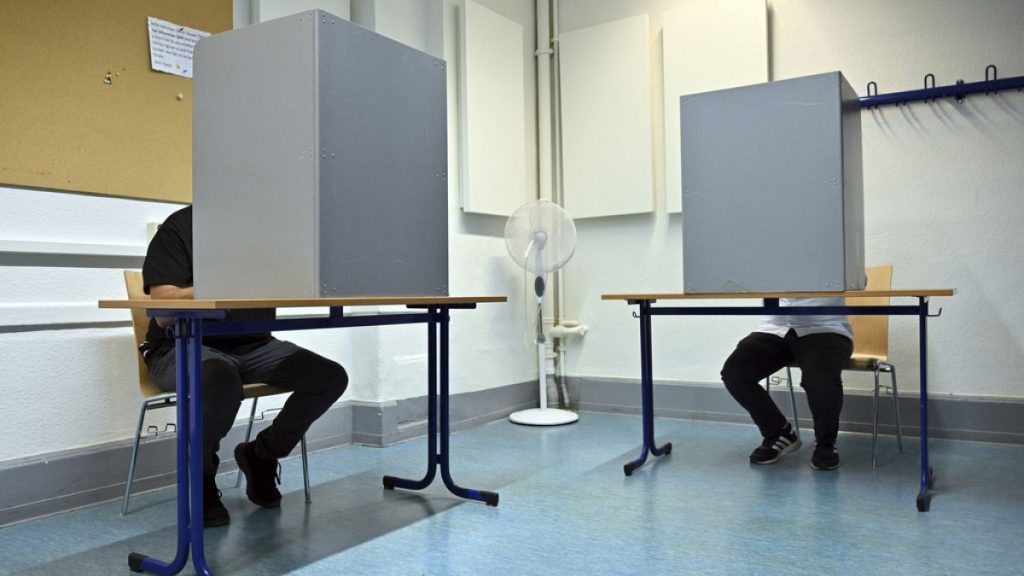Germans in Saxony and Thuringia are preparing to vote in an election that could potentially see the far-right AfD party become the strongest for the first time, causing concerns for the current national government. The three parties in Chancellor Olaf Scholz’s coalition risk falling below the 5% threshold needed to remain in the state legislatures. AfD, led by Alice Weidel, sees these elections as a crucial step towards gaining more power at the state level, even though forming a coalition may be challenging due to its extremist reputation.
The CDU hopes to maintain its hold on power in Saxony and Thuringia, with incumbent governor Michael Kretschmer leading the charge against AfD. The party faces stiff competition in Thuringia, where AfD is leading in the polls, but candidate Mario Voigt remains optimistic about forming a governing coalition. The political landscape in Thuringia is complicated by the declining influence of the Left Party, as well as the emergence of Sahra Wagenknecht’s BSW party, which has gained popularity in the region.
Discontent with the current national government, plagued by infighting, has fueled support for both AfD and BSW, particularly in the economically struggling east. AfD has capitalized on anti-immigration sentiment in the region, while Wagenknecht’s BSW combines left-wing economic policies with skepticism towards immigration. The CDU has also called for tougher immigration policies, aligning with the views of these emerging parties. Additionally, Germany’s stance on Russia’s war in Ukraine and weapons deliveries to Ukraine are contentious issues that are influencing voter sentiment.
The outcome of the elections in Saxony and Thuringia will have significant implications for the current national government, with the junior partners, the Social Democrats and Greens, potentially facing challenges if their support falls below the 5% threshold. AfD’s strength in the formerly communist east poses a threat to the existing political landscape, while the emergence of new parties like BSW further complicates the situation. The CDU’s reluctance to work with the Left Party adds another layer of complexity to coalition discussions.
The results of the upcoming elections will not only impact the state governments of Saxony and Thuringia but also have broader implications for German politics as a whole. With the national election looming in just over a year, the performance of the parties in these states will set the tone for the political landscape going forward. The rising popularity of AfD and BSW, as well as the challenges faced by the CDU and other mainstream parties, highlight the shifting dynamics of German politics and the uncertainty surrounding the future direction of the country.


